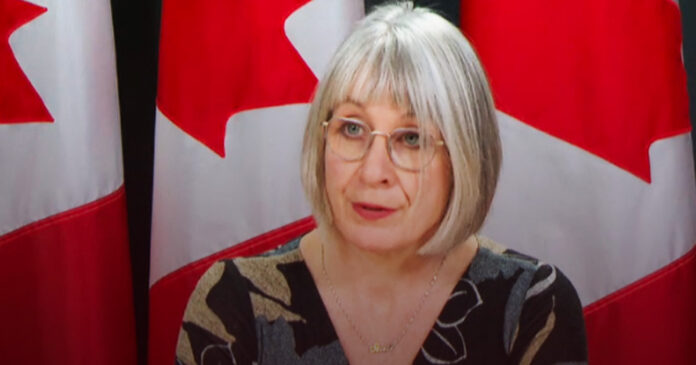Liberal Health Minister Patty Hajdu announced a $7.7 million fund to deal injectable opioids to Toronto’s addicts on Wednesday, claiming that the project will help increase access to a “safe supply” of drugs.
Hajdu appearing alongside Toronto Mayor John Tory said that the funds will go to three projects in the city.
“Through this funding, the Government of Canada is supporting Toronto Public Health to expand the medication options available for people with severe opioid use disorder in Toronto. Toronto Public Health’s project will be the first of its kind in Ontario to offer injectable hydromorphone for people with opioid use disorder who do not respond to currently available services and who remain at high risk of overdose,” a government press release claimed.
For some time, Tory has been advocating for the federal government to intervene in the city’s opioid epidemic.
The federal government has provided Toronto with funds for similar initiatives in the past, including funding for Toronto Public Health’s safer supply project and a two-year extension of similar programs South Riverdale Community Health Centre and Parkdale Queen West Community Health Centre.
In 2019, under the watch of Hajdu, Health Canada gave the green light for the use of injectable hydromorphone to treat opioid addicts.
Other cities including Victoria and Vancouver have also asked the federal government for help on dealing with the opioid epidemic.
Most recently, the Government of British Columbia requested an exemption from the federal government which would decriminalize possession of hard drugs province-wide.
Ontario Premier Doug Ford has spoken out against the idea of decriminalizing hard drugs in the province.
“Absolutely not. I am not in favour of legalizing small quantities of cocaine or heroin,” Ford said.
“We aren’t talking about weed or marijuana, we’re talking about serious drugs that can kill people, that are highly, highly addictive.”
However, Toronto’s Medical Officer of Health Dr. Eileen de Villa expressed support for the idea in a recent report on drug overdose deaths.
Further, in August, Chief Public Health Officer Dr. Theresa Tam said she was willing to discuss opioid decriminalization.

